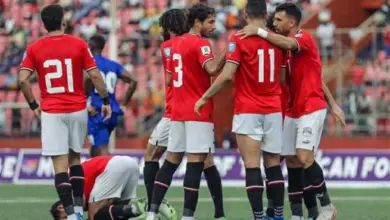Egypt finally saw the long-awaited dissolution of one of its main symbols of corruption and nepotism: the now non-entity formerly known as the former ruling National Democratic Party (NDP). A picture book of the NDP’s leadership over the past 30 years could serve as a Who’s Who of the people who contributed most heavily to Egypt’s downward spiral — barring a very small minority that many considered to be honest. Under the leadership of Talaat al-Sadat, a failed attempt was made last week to revive the party with a new name: the New National Democratic Party.
Al-Wafd’s party paper called it “The end of the NDP legend.” Independent Al-Shorouk simply used a Tahrir Square chant to express the ruling: “The NDP… invalid.” The Political Party Management arm of the Supreme Administrative Court decided to confiscate the NDP’s assets.
State-run Al-Ahram says that head of the court, Mohamed Agaty, decided that the NDP’s dissolution is a natural by-product of the 25 January revolution that called for the fall of the regime. Since its head stepped down, “legally and logically,” his main tool must go as well.
As for the former regime’s head, ousted president Hosni Mubarak, independent Al-Dostour says that Attorney General Abdel Meguid Mahmoud is awaiting medical reports before deciding when to interrogate him. Al-Dostour says that Mahmoud sent Mubarak to the International Medical Center on the Cairo-Ismailia road, and not to the Tora Prison hospital, as reports recently suggested.
The prison, now a historic Egyptian landmark due to its all-star cast of corrupt officials, is scrutinized by newspapers in order to satisfy the public's desire to know what conditions are like in the prison. Al-Shorouk says that the former prime minister refereed a soccer match between former NDP chair Ahmed Ezz and some of his business/political associates against former Interior Minister Habib al-Adly and some of his security pals. The former president’s son Gamal Mubarak, former Minister of Information Anas al-Fiqqi and NDP henchman Ibrahim Kamel apparently watched from the sidelines. Al-Ahram, however, says that Gamal and Alaa Mubarak are depressed and alone in prison, and have yet to receive visitors.
Famed political commentator Osama Heikal writes in Al-Wafd that although keeping all these individuals in the same prison may be a security advantage, it is a political liability. He argues their proximity with each other may allow them to organize counter-revolutionary efforts.
State-run Al-Akhbar highlighted the visit of Al-Azhar Grand Sheikh Ahmed al-Tayyeb to the rebuilt “Sol (Atfeeh) Church.”
Meanwhile, political parties are dealing with their own mini-revolts, according to Al-Shorouk. The youth of the Muslim Brotherhood met again in an effort to “change the skin” of the group to give it a more progressive look. They also report on a Wafd Party decision to freeze memberships of some its younger members who have called for party’s overhaul.
The municipality issue is one of the more controversial ones for this government. Many are calling for the dissolution of municipal councils, which are thought to have exploited by the former government to maintain control over municipalities. They are also seen as one of the main culprits of waste and corruption. Al-Wafd says that Prime Minister Essam Sharaf promised to dissolve these councils “within hours.”
Al-Ahram says that the new governors, who swore oaths of office yesterday, were given orders to focus on “youth issues” and building new housing units. The headline is reminiscent of Mubarak-era vagueness on government issues. In Al-Shorouk, government employees objected to the decision to dissolve the governorates of 6th of October City and Helwan and re-attach them to Giza and Cairo respectively.
Egypt’s finance minister is in Washington to look into financial assistance for Egypt. In Al-Ahram the Central Bank says that the government does not need aid or the restructuring of its debts; it needs US$10 billion in grants to help it cope with Egypt’s budget deficit and give it more freedom to sell bonds on the international market. Prime Minister Essam Sharaf, meanwhile, decided to tour Gulf countries in order to promote investment in Egypt.
Financial analysts in Al-Dostour criticized the request for aid (grants) in different ways. Magdy Sobhy, an analyst at the Ahram Center for Political and Strategic Studies, said that US$10 billion is too much to ask for from European countries while many EU countries — such as Portugal — are dealing with their own financial crises. Salah Gouda, head of the Center for Economic Studies, said he thinks that the controversial and mysteriously ear-marked pork-barrel ministerial “spending boxes” should be able to provide this amount.
The Omar Effendi issue is on the table again. The formerly public-owned landmark retailer was controversially sold to a Saudi retailer in 2006. Al-Dostour reports on a lawsuit claiming that its sale was invalid as it was sold at a quarter of its value. Al-Shorouk says that government commissioners were discussing nullifying the sale due to numerous contractual infringements.
Many papers brought to light the plight of Egyptians in Libya. Al-Wafd has an interview with an Egyptian doctor who returned from Misrata and says that Muammar Qadhafi used Egyptians as human shields. He says there are many unidentified Egyptian bodies scattered in Libyan cities.
Egypt's papers:
Al-Ahram: Daily, state-run, largest distribution in Egypt
Al-Akhbar: Daily, state-run, second to Al-Ahram in institutional size
Al-Gomhurriya: Daily, state-run
Rose al-Youssef: Daily, state-run
Al-Dostour: Daily, privately owned
Al-Shorouk: Daily, privately owned
Al-Wafd: Daily, published by the liberal Wafd Party
Al-Arabi: Weekly, published by the Arab Nasserist party
Youm7: Weekly, privately owned
Sawt al-Umma: Weekly, privately owned




